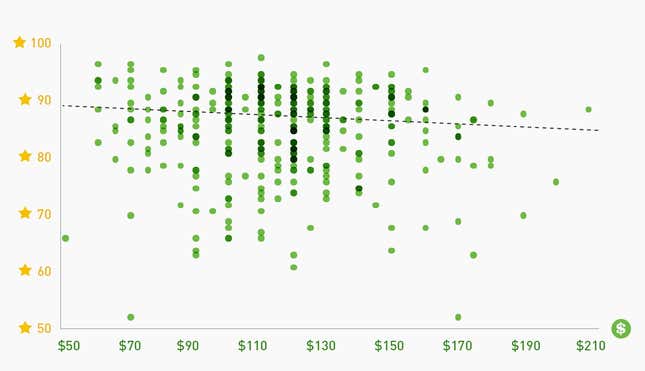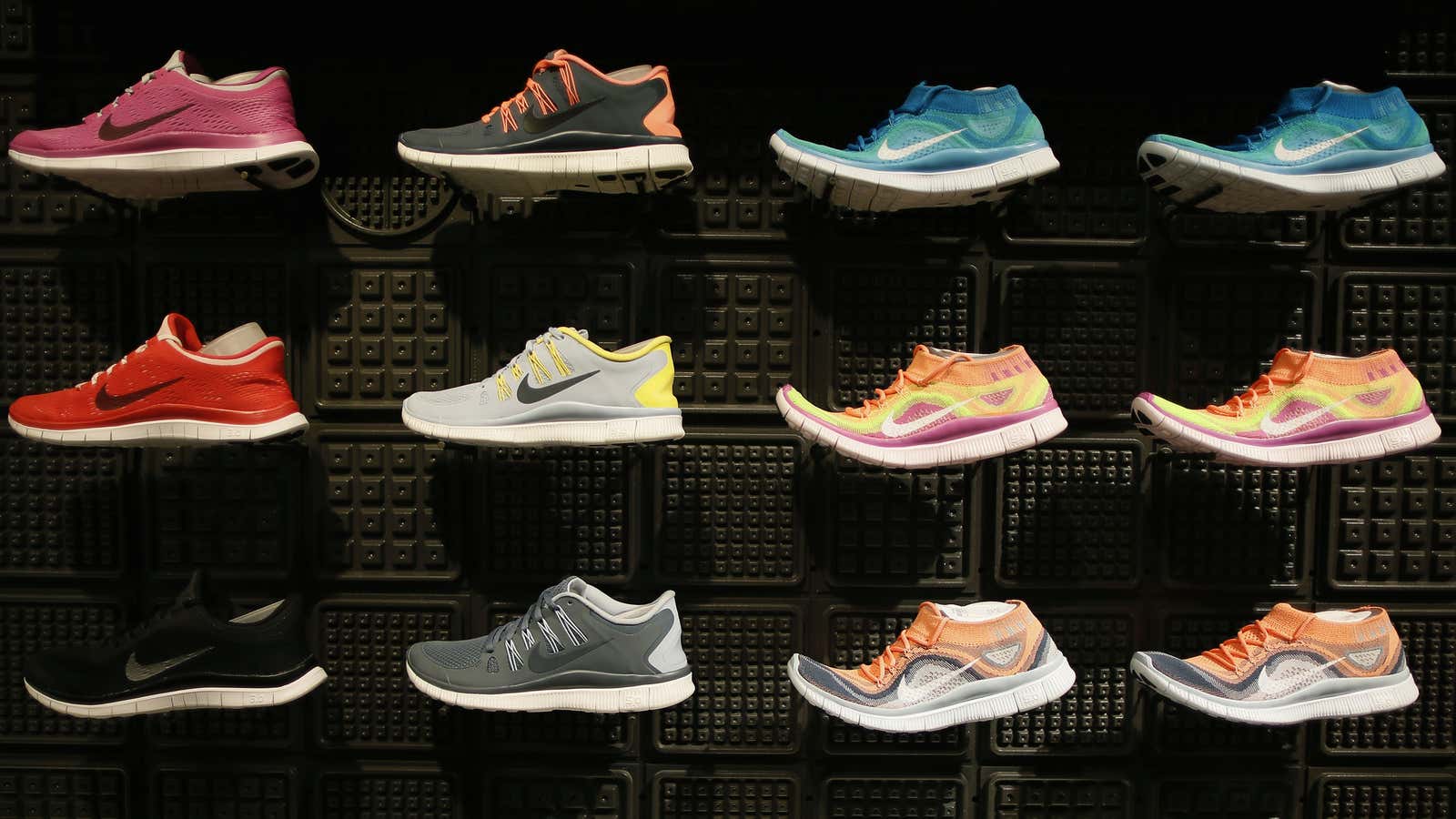When you shell out a lot of cash for a pair of expensive running sneakers, the hope is that the extra cost will pay off in higher satisfaction. Unfortunately a new study suggests it won’t.
RunRepeat, a site where runners review and compare sneakers, analyzed 134,867 reviews of 391 different shoes from 24 brands. Its main conclusion: “There is no statistical correlation between the list price of a shoe and how well rated it is. Actually, if you do a regression analysis, the data suggest that cheaper running shoes are higher rated than expensive ones.”
When the study’s authors zoomed in on the 10 most expensive shoes, which had an average price of $181, they found user ratings were about 8% lower than the 10 least expensive shoes, which had an average price of $61. The trend toward cheaper shoes was also present when they looked more broadly at the 30 highest-ranked running shoes and the 30 lowest-ranked shoes.

The study, it’s worth pointing out, only considered customer satisfaction, not performance. It also acknowledged that a higher price tag might lead people to expect more, so a reviewer might judge expensive sneakers more harshly, even if the performance is good.
“I am aware that higher prices set higher expectations,” wrote Jens Jakob Andersen, the lead researcher on the study and founder of RunRepeat, “but in any case the price should reflect the quality of the product and thereby the ratings.”
Andersen, a former statistics professor at Copenhagen Business School, analyzed the data with Polish statistician Wojciech Fedyszyn, and wrote that the study was “reviewed by dozens of experts before being published.”
One of the big surprises was which brands received the highest and lowest user ratings. At the top of the list was Skechers, the mom-approved brand that continues to grow its US sales. At number two and three, respectively, were Saucony and Vibram FiveFingers, the minimalist running shoes with individually defined toes that ran into legal trouble over claims they could reduce foot injuries.
On the other end of the ratings, Adidas was next to last, ahead of only Reebok, which it actually owns.
Nike, in case you’re wondering, was in the middle of the pack.
So what’s a runner to conclude? Paying more doesn’t mean you’ll be more satisfied. As for which sneakers to buy, you should probably just go with the comfiest pair.
